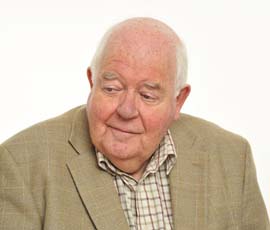We need sound science not extremist rants

Try as I might I can’t work up enthusiasm for the coming harvest. Usually I look forward to this culmination of the arable year with controlled optimism in the hope that yields and quality will be good. This year I have no illusions. They won’t be up to the standard of previous years or budgeted expectations. The only question is how bad they will be.
As I write, our combinable crops are still some days off being fit to cut. We don’t grow barley, winter or spring, so I’m relying on neighbours for information. Some winter-drilled crops on good-bodied land are reported to have produced as much as 6.25t/ha (2.5t/acre). Others, on lower quality soils, as little as 2.5t/ha (1t/acre). It might be best not to speculate how much worse some spring drillings might turn out. For the record, Norfolk has been identified as one of the worst drought-affected areas in the country.
As I walked some of our late-drilled winter wheats the other day, I wondered how the drought-resistant varieties we are told could be produced with genetic modification might have performed this year – had they been available. And my frustration mounted when I later learned the European Parliament had voted to continue the ban on the cultivation of GM crops “on their territory”.
It beggars belief that a bunch of supposedly intelligent people in positions of influence and power could choose to ignore sound science in the face of the urgent world need to increase the sustainable production of food.
And this follows previous votes, some of which have been implemented by the Commission, to cut the number of tried-and-tested agrochemicals permitted to be used on European farms, thereby adding costs and reducing potential production.
To be fair to the British government, it has tried (unsuccessfully) to resist both of the above measures as being unnecessary and anti-competitive.
Despite that, here too, MPs dance to the same kinds of political tunes. Look no further than the interminable delay in introducing a cull of badgers. Hopefully, after hundreds of thousands of animals have been infected with TB and unnecessarily slaughtered, that situation will now change.
So, why do politicians ignore science? It has everything to do with their survival in office and very little to do with the good of either agriculture or consumers.
The fact is they run scared of pressure groups. We all know who they are and what they represent. Their claims are seldom supported by facts. But their ability to create and spread distorted stories is legendary.
Furthermore, as we have seen all too clearly in recent weeks, Britain has a popular press that is willing to print almost anything if it sells more newspapers. And scare stories based around soft targets, like farming, are ideal for them.
Such stories have a huge influence on public opinion which the politicians both court and fear and the country ends up being governed, indirectly through the channels described, by pressure groups.
Food retailers read the same opinion polls and whatever they and their directors really believe, take the same line as government so as not to alienate customers. Science and those who believe in it don’t get a look-in.
The time is long overdue for politicians and retailers to get off the fence, stand up to pressure groups and seek to change public opinion, making it clear to consumers (who are also voters) that the future or the world depends on sound science, not extremist rantings.
Do you agree with David that the country is indirectly governed by pressure groups? Have your say
David Richardson farms about 400ha (1,000 acres) of arable land near Norwich in Norfolk in partnership with his wife, Lorna. His son, Rob, is farm manager.
Read more from David and the other Farmers Weekly columnists.
